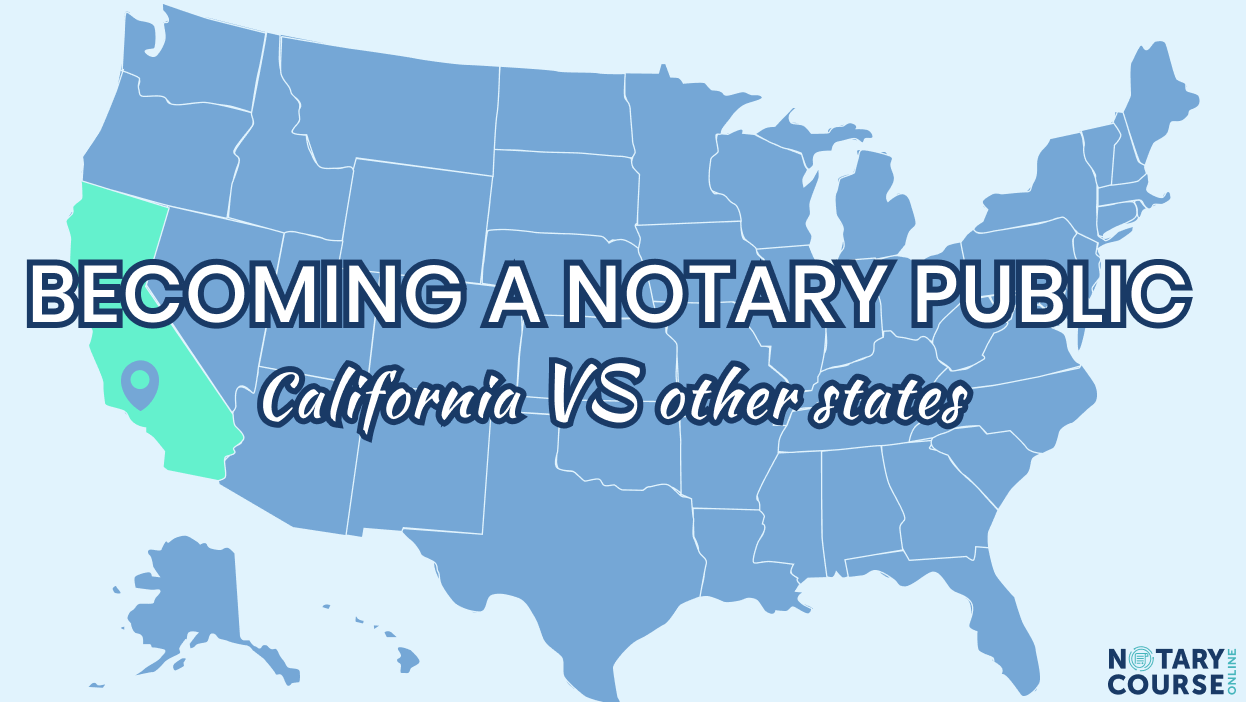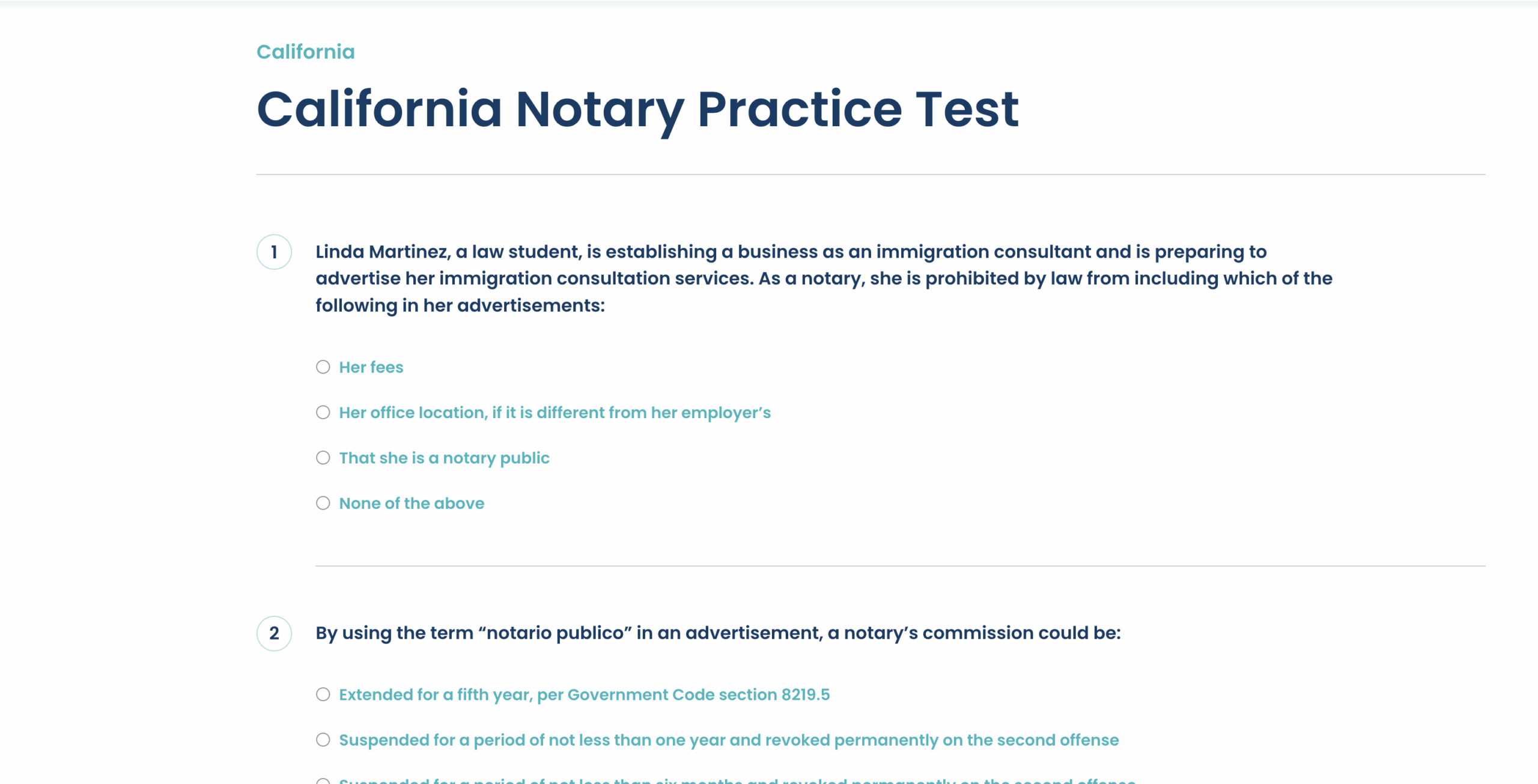California
Blog
The Importance of a Notary Journal: A Comprehensive Guide for California Notaries

-
by Notary Course Online
- January 31, 2025
For notaries in California, maintaining a proper notary journal is not just a best practice— it’s a legal requirement. Whether you are a seasoned notary or just starting, understanding the role of a notary journal, its importance, and how to make accurate entries is essential to your success and compliance. In this guide, we will explore the importance of a notary journal, delve into the legal requirements in California, and provide tips to ensure your journal entries are accurate and secure.
What is a Notary Journal?
A notary journal, also known as a notarial register, is a record book that details every notarial act performed by a notary public. It serves as an official log to ensure transparency, accountability, and protection for both the notary and the public. The journal provides a permanent record that can be referenced in legal disputes or investigations.
Why is a Notary Journal Important?
Maintaining a notary journal is critical for several reasons:
1. Legal Compliance
In California, every notary public is legally required to keep a journal of all notarial acts. Failure to do so can result in fines, suspension, or revocation of your notary commission. California Government Code Section 8206 outlines the specific requirements for keeping a notary journal, including the type of information that must be recorded.
2. Accountability and Transparency
A notary journal ensures accountability by providing a clear record of your actions. It helps build trust with your clients and protects you from potential allegations of fraud or misconduct.
3. Evidence in Legal Proceedings
In case of disputes or fraud claims, your notary journal can serve as critical evidence. Courts and law enforcement agencies may rely on your records to verify the details of a notarization.
4. Protection Against Liability
By documenting all notarial acts thoroughly and accurately, you reduce the risk of legal liability. A complete and precise notary journal entry can safeguard you against lawsuits or disciplinary actions.
California Notary Journal Requirements
California has specific rules and guidelines for maintaining a notary journal. Understanding and adhering to these requirements is essential for compliance.
1. Journal Format
The notary journal must be a bound book with sequentially numbered pages to prevent tampering or removal of pages. Spiral-bound or loose-leaf notebooks are not allowed.
2. Required Information
Each entry in your notary journal must include the following details:
◦ Date and time of the notarization.
◦ Type of notarization (e.g., acknowledgment, jurat).
◦ Description of the document being notarized.
◦ Signer’s name and address.
◦ Type of identification provided (e.g., driver’s license, passport).
◦ Identification document details, such as the issuing agency and expiration date.
◦ Signature of the signer.
◦ Fee charged for the notarial act (if applicable).
3. Thumbprint Requirement
For certain transactions, such as notarizations involving real estate or powers of attorney,
California law mandates obtaining the signer’s thumbprint in your journal.
4. Journal Security
Your notary journal must be stored in a secure location and accessible only to you. Unauthorized access can compromise the integrity of your records and lead to legal consequences.
5. Retention Period
California law requires notaries to keep their journals indefinitely or until the time of their resignation or death. Only in these two cases are the journals returned to the County Clerk’s office where the notary filed their bond and oath within 30 days of the resignation or death of the notary. If the notary completes their four-year commission and then does not wish to continue, then they will return their journals to the County Clerk’s office.
How to Make a Proper Notary Journal Entry
Making accurate and complete entries in your notary journal is crucial. Here are some tips to ensure your journal is compliant and effective:
1. Use Clear and Legible Handwriting
Write neatly to ensure that your entries are easy to read. Illegible handwriting can cause confusion and reduce the credibility of your records.
2. Be Specific and Detailed
Include detailed descriptions of the document being notarized and the type of notarization performed. Avoid vague or incomplete entries.
3. Verify Signer’s Identity
Always confirm the signer’s identity using an acceptable form of identification. Record the
ID details accurately in your journal.
4. Obtain the Signer’s Thumbprint When Required
For transactions involving real estate or powers of attorney, remember to collect and record the signer’s thumbprint in the designated section of your journal.
5. Do Not Pre-Fill Entries
Avoid pre-filling journal entries before completing the notarization. Each entry should be made in real-time to ensure accuracy.
Common Mistakes to Avoid
1. Omitting Required Information
Ensure all mandatory fields in your journal are filled out completely. Missing information can lead to compliance issues.
2. Using an Improper Journal
Using a non-compliant journal, such as a loose-leaf notebook, violates California law. Always use a bound journal with numbered pages.
3. Allowing Unauthorized Access
Never leave your journal unattended or accessible to others. Unauthorized access can compromise your records and put you at risk.
4. Failing to Record Fees
Even if you are performing a free notarization, note “$0” in the fee section to avoid leaving
blank spaces.
Tips for Securing Your Notary Journal
1. Invest in a Lockable Storage Store your notary journal in a secure, lockable location, such as a safe or locked cabinet.
2. Use Privacy Guards Use a privacy guard to cover previous entries when showing your journal to a signer for their signature.
3. Report Lost or Stolen Journals Immediately If your journal is lost or stolen, the notary must notify the California Secretary of State immediately by certified or registered mail or any other means of physical delivery that provides a receipt, and follow their guidelines for handling such situations.
Digital Notary Journals: Are They Allowed in California?
California law currently requires notaries to use a physical, bound journal. While digital notary journals are gaining popularity in some states, they are not permitted in California. Always ensure you comply with state laws when maintaining your journal.
Conclusion
Maintaining a notary journal is an essential responsibility for California notaries. By adhering to state requirements and keeping accurate records, you protect yourself, your clients, and the integrity of your profession. Use this guide to enhance your understanding of notary journal practices and ensure compliance with California law.
FAQs About Notary Journals
What information is required in a California notary journal entry?
Each entry must include the date and time, type of notarization, document description, signer’s details, identification information, signer’s signature, and any applicable fees. For certain transactions, a thumbprint is also required.
How long must I keep my notary journal in California?
California notaries are required to retain their journals for as long as they continue to keep an active notary commission. Only when the notary resigns or dies are the journals to be returned to the County Clerk’s office where the notary filed their bond and oath.
Can I use a digital notary journal in California?
No, California law mandates the use of a physical, bound journal with sequentially numbered pages.
How can I learn more about notary laws and best practices?
Visit Notary Course Online to access comprehensive resources, courses, and guides to enhance your knowledge and skills as a California notary.






 Congratulations!
Congratulations!